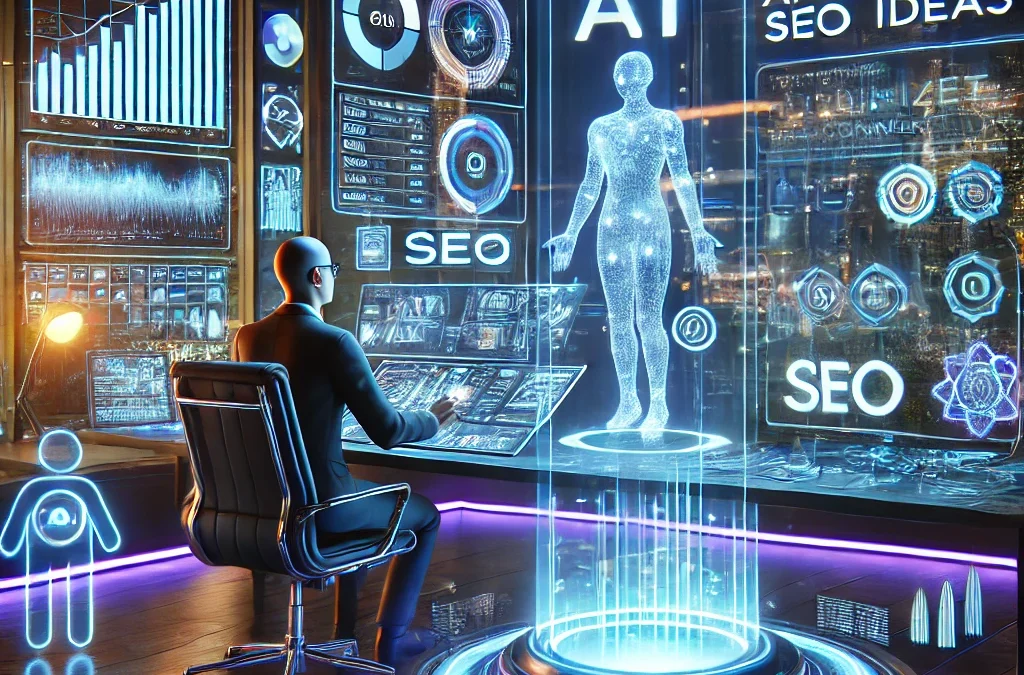Artificial intelligence (AI) has evolved from a futuristic concept into a transformative force reshaping industries and everyday experiences. From healthcare to retail, AI-driven innovations optimize efficiency, improve decision-making, and enhance convenience. Understanding its journey, impact, and challenges becomes essential as AI advances.
The Evolution of AI: From Concept to Reality
The idea of artificial intelligence dates back decades, with early theoretical discussions by visionaries like Alan Turing. However, AI’s true potential began unfolding with increased computational power and the rise of machine learning. In the past, AI was confined to rule-based systems with limited capabilities. It powers advanced algorithms today, enabling self-learning models that drive real-world applications.
AI’s development accelerated due to deep learning, big data, and cloud computing breakthroughs. Neural networks allow AI to process vast amounts of information, recognize patterns, and make accurate predictions. These advancements have paved the way for AI-driven solutions in diverse industries, fundamentally changing how businesses operate and how people interact with technology.
AI in Industries: Revolutionizing Business Operations
AI is transforming industries by enhancing efficiency and decision-making across multiple sectors. In healthcare, AI assists in diagnosing diseases, personalizing treatments, and streamlining administrative tasks. Machine learning models analyze medical images with high accuracy, enabling early detection of conditions like cancer.
In finance, AI-driven algorithms assess risk, detect fraud, and automate trading strategies. Financial institutions use predictive analytics to enhance customer experience and prevent security threats. Manufacturing has also significantly improved, with AI-powered robotics optimizing production lines and reducing downtime.
Retail businesses leverage AI for personalized customer experiences, optimizing inventory management, and streamlining logistics. Chatbots, recommendation engines, and automated checkout systems enhance customer engagement and operational efficiency. As AI continues advancing, its role in revolutionizing business operations expands further.
AI in Daily Life: Enhancing Everyday Experiences
Beyond industries, AI is deeply integrated into daily life, making routine tasks more convenient. Smart assistants like Siri and Alexa utilize AI-powered natural language processing to understand and respond to user commands. These intelligent systems provide hands-free assistance, setting reminders, answering queries, and controlling smart home devices.
Personalized recommendations have transformed digital experiences from content streaming platforms to online shopping. AI algorithms analyze user behavior, delivering tailored content and product suggestions. Automated smartphone features, email filtering, and navigation apps exemplify how AI simplifies day-to-day activities.
Automation extends into various aspects of life, from self-driving cars to smart appliances. AI-driven home security systems, voice-controlled lighting, and automated thermostats enhance convenience and energy efficiency. AI’s presence in daily routines will grow with continuous improvements, creating a more connected and intelligent world.
Challenges and Ethical Concerns in AI Adoption
Despite its transformative benefits, AI adoption presents significant challenges and ethical concerns. Data privacy remains a major issue, as AI relies on vast datasets for training. Data security and compliance with regulations are crucial to preventing misuse and breaches.
Bias in AI algorithms is another pressing concern. AI systems learn from historical data, which may contain biases that lead to unfair decision-making. Addressing bias requires diverse training datasets, rigorous testing, and ethical AI development practices.
Job displacement is a growing worry as automation replaces repetitive tasks. While AI creates new opportunities, reskilling the workforce becomes essential to mitigate job losses. Companies must balance automation with human workforce development to ensure sustainable employment opportunities.
Responsible AI use demands transparency and accountability. Ethical frameworks and policies must govern AI applications, ensuring fairness and minimizing unintended consequences. Collaboration between governments, tech leaders, and researchers is vital to shaping AI’s ethical landscape.
The Future of AI: Opportunities and Innovations
AI’s future promises exciting opportunities and groundbreaking innovations. Advancements in deep learning, quantum computing, and natural language processing will drive AI capabilities to new heights. AI-powered medical breakthroughs could revolutionize disease treatment and drug discovery, enhancing healthcare outcomes.
AI-driven automation will refine decision-making processes in business, increasing productivity and efficiency. AI’s role in cybersecurity will strengthen digital defenses, detecting and preventing cyber threats with higher precision. Smart cities will leverage AI to optimize traffic management, energy consumption, and public services, improving urban living conditions.
Human-AI collaboration will shape future workplaces, with AI augmenting human capabilities rather than replacing them. Ethical AI development and regulatory frameworks will be crucial in ensuring AI benefits society while minimizing risks.
As AI continues evolving, embracing its potential while addressing challenges is key to harnessing its transformative power. By fostering responsible AI adoption, industries and individuals can thrive in an era of intelligent automation and innovation.
